Choisissez la langue de votre document :
- bg - български
- es - español
- cs - čeština
- da - dansk
- de - Deutsch
- et - eesti keel
- el - ελληνικά
- en - English
- fr - français
- ga - Gaeilge
- hr - hrvatski
- it - italiano
- lv - latviešu valoda
- lt - lietuvių kalba
- hu - magyar
- mt - Malti
- nl - Nederlands
- pl - polski
- pt - português
- ro - română
- sk - slovenčina
- sl - slovenščina
- fi - suomi
- sv - svenska
|
| Procedure : 2013/2034(INI) |
| Document selected : A7-0202/2013 | ||||||
Texts tabled : A7-0202/2013 | Debates : | Votes : | Texts adopted : P7_TA(2013)0234 | |||
| Texts adopted |
|
||||
| Tuesday, 11 June 2013 - Strasbourg | |||||
| Recommendation to the Council on the 68th session of the United Nations General Assembly |
|
|
The European Parliament, – having regard to the Treaty on European Union (TEU), in particular Articles 21 and 34 thereof, – having regard to the proposal for a recommendation to the Council on the 68th Session of the United Nations General Assembly (UNGA) by Alexander Graf Lambsdorff, on behalf of the ALDE Group (B7-0083/2013), – having regard to Council Decision 2011/168/CFSP of 21 March 2011 on the International Criminal Court and repealing Common Position 2003/444/CFSP, – having regard to the EU’s priorities for the 67th Session of the UNGA, as adopted by the Council on 23 July 2012(1), – having regard to the Commission communication of 10 September 2003 entitled ‘The European Union and the United Nations: the choice of multilateralism’ (COM(2003)0526), – having regard to the 67th Session of the UNGA, in particular that body’s resolutions on ‘The Arms Trade Treaty’(2), ’Quadrennial comprehensive policy review of operational activities for development of the United Nations system’(3), ‘Freedom of religion or belief’(4), ’Promotion of a democratic and equitable international order’(5), ‘Enhancement of international cooperation in the field of human rights’(6), ’The rule of law at the national and international levels’(7), and ‘Women, disarmament, non-proliferation and arms control’(8), – having regard to the UNGA resolution of 3 May 2011 on the participation of the European Union in the work of the United Nations(9), – having regard to the UNGA resolution of 31 October 2003 which adopted the United Nations Convention against Corruption(10), – having regard to the UN Security Council (UNSC) Resolution 1325 on Women, Peace and Security, adopted on 31 October 2000, – having regard to the resolution of the UN Human Rights Council of 5 July 2012 entitled ‘The promotion, protection and enjoyment of human rights on the Internet’, which recognises the importance of human rights protection and the free flow of information online, – having regard to its recommendation to the Council of 13 June 2012 on the 67th Session of the UNGA(11), – having regard to its recommendation to the Council of 18 April 2013 on the UN principle of the ‘Responsibility to Protect’ (R2P)(12), – having regard to its resolution of 11 May 2011 on the EU as a global actor: its role in multilateral organisations(13), – having regard to its resolution of 7 July 2011 on EU external policies in favour of democratisation(14), – having regard to its resolution of 7 February 2013 on the 22nd session of the United Nations Human Rights Council(15), – having regard to the report of the joint delegation of the Committee on Foreign Affairs and the Subcommittee on Human Rights to the 67th session of the UN General Assembly, dated 28-29 October 2012, – having regard to Rules 121(3) and 97 of its Rules of Procedure, – having regard to the report of the Committee on Foreign Affairs and the opinion of the Committee on Development (A7-0202/2013), A. whereas in view of the growing globalisation and interconnectedness of states and societies there is a growing need and opportunity for common rules and decision-making mechanisms in order to address emerging global challenges jointly; B. whereas the fragmentation of global policy-making, combined with a proliferation of international and transnational forums, is creating new complexities in international relations; C. whereas the EU is committed to effective multilateralism with a strong UN system at its core; whereas the UN is at the centre of global governance; D. whereas a solid and stable EU-UN partnership underpins and contributes to the work of the UN under all three pillars – peace and security, human rights and development – and whereas, in this way, the EU must meet its responsibility to play a part in devising joint approaches to global challenges; E. whereas respect for, and the promotion and safeguarding of, the universality and indivisibility of human rights are cornerstones of EU action on the international scene; whereas democracy and the rule of law are pillars of sustainable peace, guaranteeing human rights and fundamental freedoms; 1. Addresses the following recommendations to the Council:
2. Instructs its President to forward this recommendation to the Council, the Vice-President of the European Commission / High Representative of the Union for Foreign Affairs and Security Policy and, for information, to the Commission.
| ||||||||||||||||||||||||||||||||||||||||||||||||||||||||||||||||||||||||||||||||||||||||||||||||||||||||||||||||||||||||||||||||||||||||||||||||||||||||||||||||||||||||||||||||||||||||||
| Legal notice - Privacy policy |

